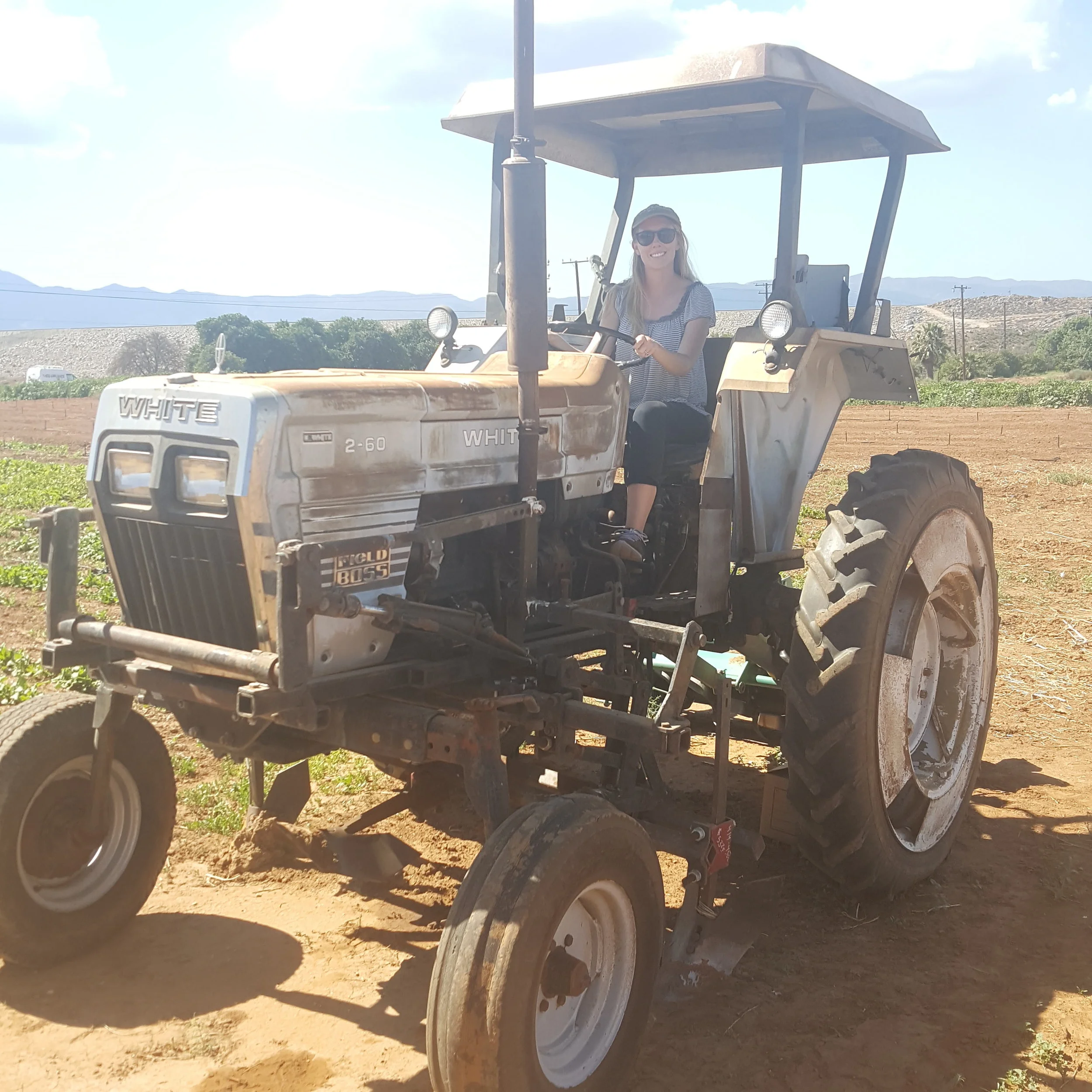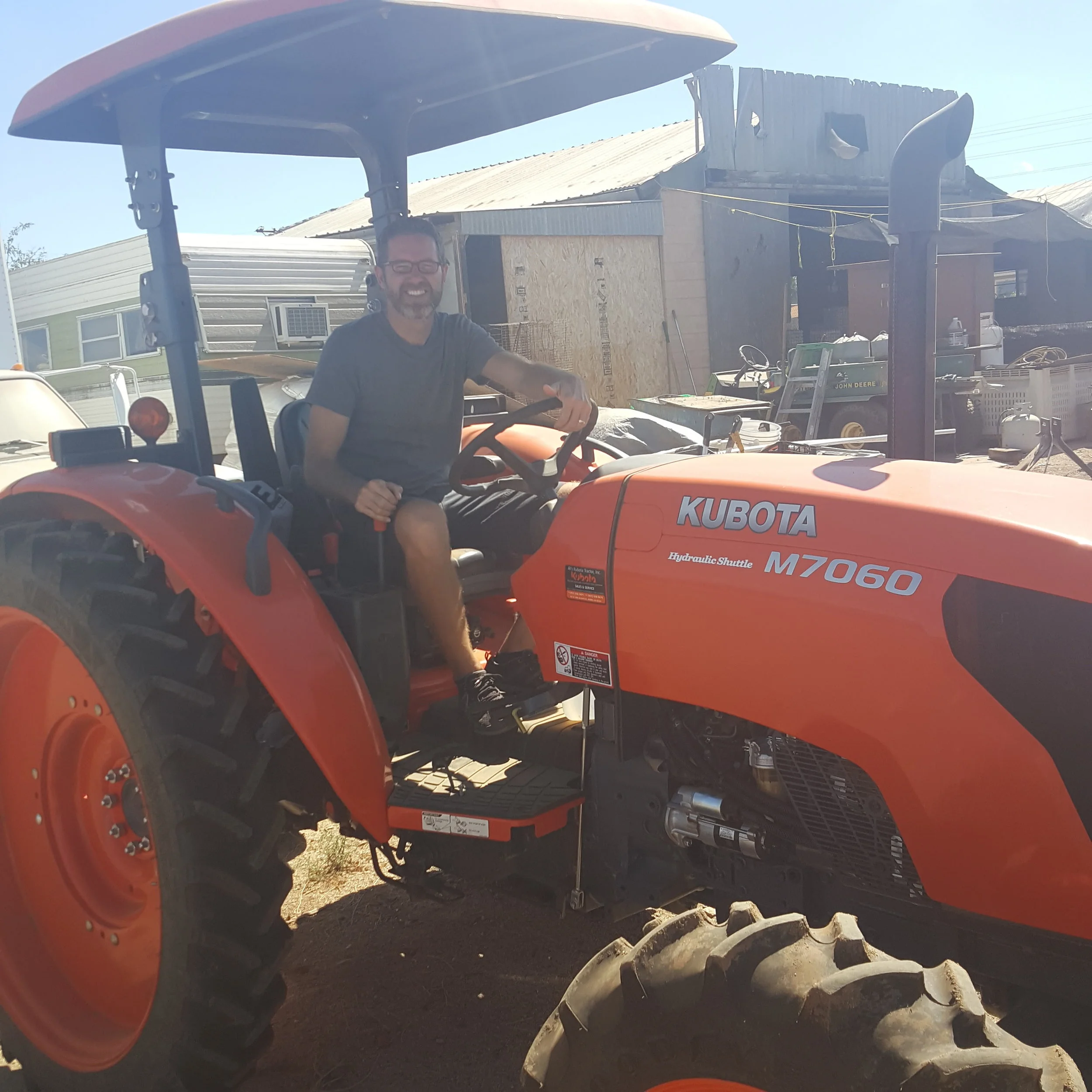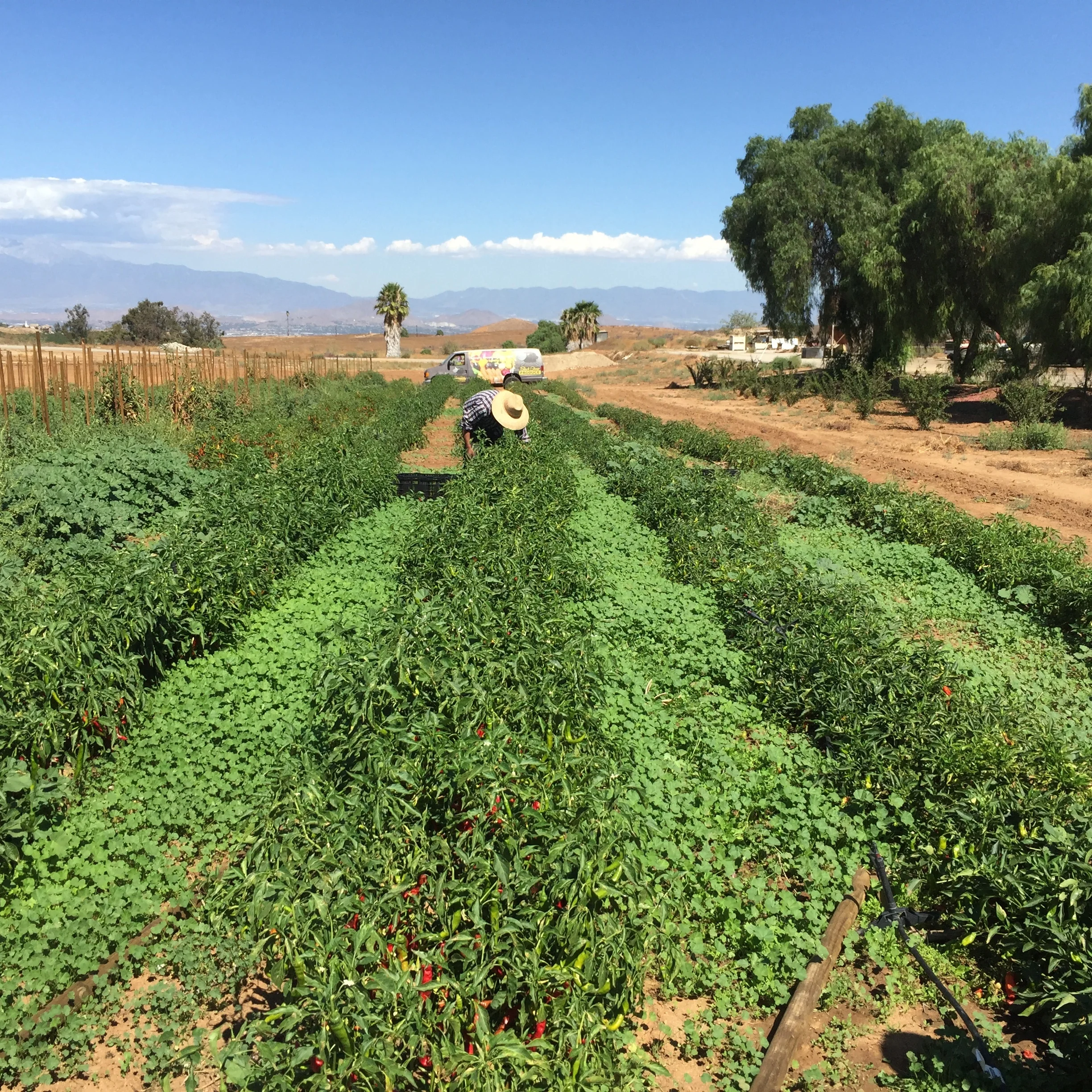Farm Tour: Black Sheep Farms
There is not much more enjoyable than a farm tour. It is a great feeling to see the pride in a farmer’s eyes as they show off the land on which they grow food. It is also a humbling and grounding experience to see all that is involved in the start of the farm to plate journey. Learn about our visit to Black Sheep Farms of Riverside.
There is not much more enjoyable than a farm tour. It is a great feeling to see the pride in a farmer’s eyes as they show off the land on which they grow food. It is also a humbling and grounding experience to see all that is involved in the start of the farm to plate journey.
Edgar Jaime, owner, gave us a tour of Black Sheep Farms. Edgar currently grows on two leased parcels (totaling about 10 acres) in Riverside. Black Sheep Farms is a specialty grower for restaurants and farmers’ markets. Edgar likes to focus on varieties that local restaurant chefs seek. If the chefs haven’t gobbled up all his production, you’ll find specialty items such as mini sweet peppers, watermelon radishes, flying saucer squash and heirloom tomatoes adorning his farmers’ market table.
Edgar Jaime educating Farmer Mark about his production.
Edgar grew up in a farming family. His father immigrated from Mexico and worked at a farm growing Asian produce before starting his own farm. Edgar’s siblings chose the farming life as well. However, it wasn’t Edgar’s first choice. He graduated college with a BA in Business and pursued the business world before the economic downturn of 2001 made him rethink his farming roots. He returned to work with his father and quickly realized the opportunity in growing specialty produce offerings for sales to chefs (via wholesalers). Eventually, Edgar branched off from the family farm and started Black Sheep Farms on his own. A name derived from his decision to stray from the family farm.
Tasting a freshly picked ripe watermelon from the vine. Very refreshing in the 95 degree heat.
Like many small farmers, Edgar hopes he may be able to purchase some land of his own in the near future. Cost and water access are major hurdles in this goal. He recently had to upgrade his 1973 tractor for a new one. No small act with a new one going for around $40k.
Although Edgar currently follows organic farming practices, he is not permitted to call his produce Organic without USDA Certification. (Read more about Organic) He has applied for organic certification with CCOF and is in the transitional period.







